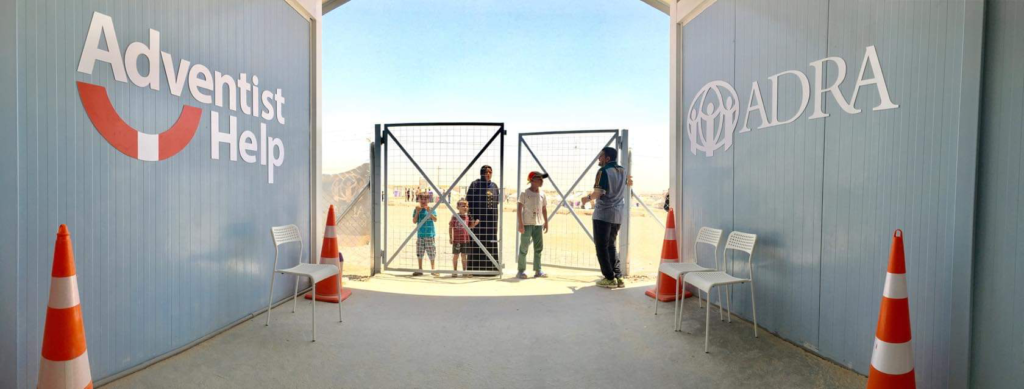
AdventistHelp and ADRA are two SDA initiatives that provide refugee services.
Saturday, June 15 was recently designated as “World Refugee Sabbath” by the Seventh-day Adventist Church. [1] This annual sabbath has been set aside by the church to “raise awareness” and to support refugees world-wide.
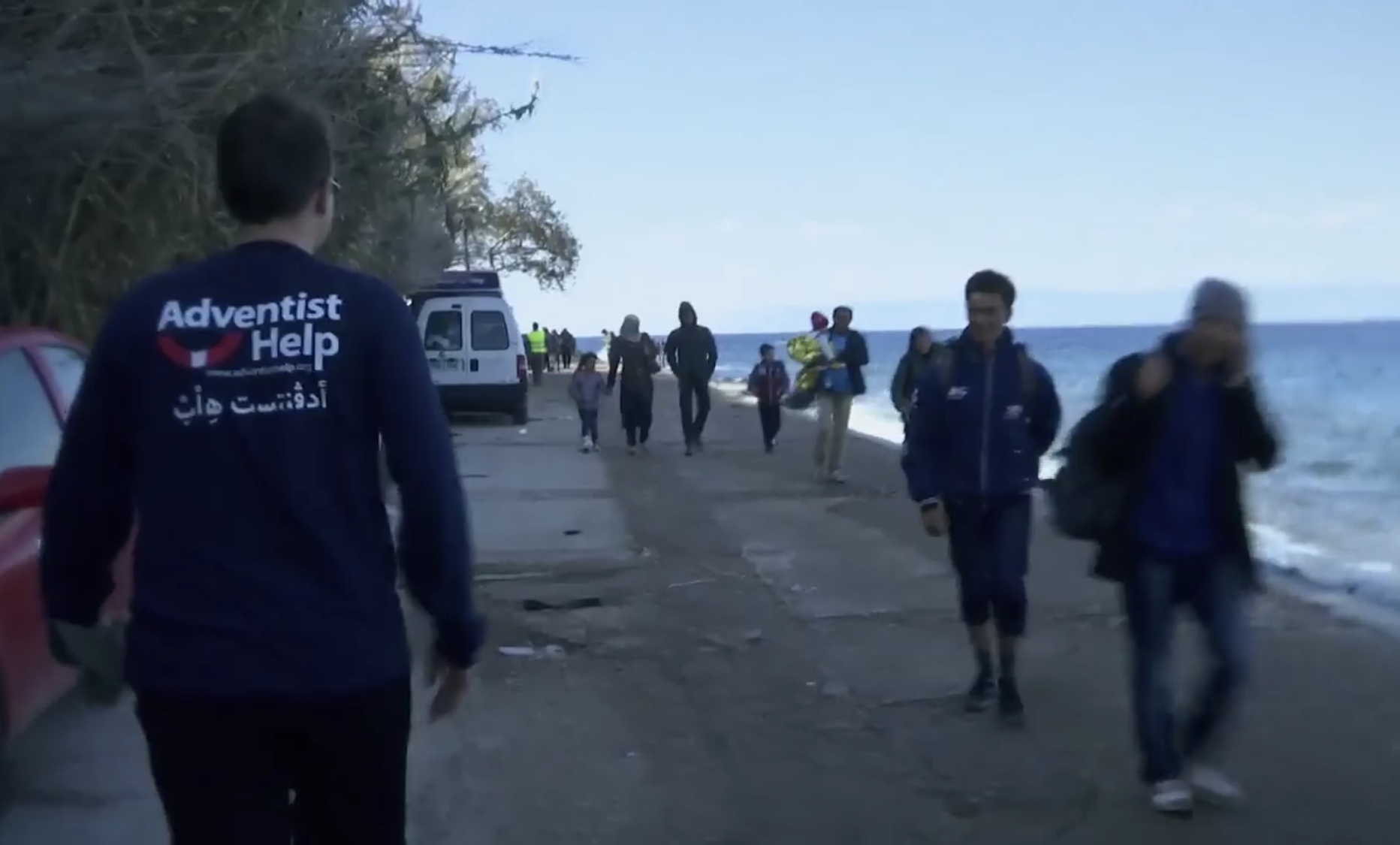
AdventistHelp are the first to welcome refugees entering Europe.
The idea for a “World Refugee Sabbath” is not unique. It was borrowed from the United Nations who celebrate “World Refugee Day” every year on June 20. [2] Both World Refugee Sabbath (June 15) and World Refugee Day (June 20) are celebrated to demonstrate solidarity with refugees who are on the move.
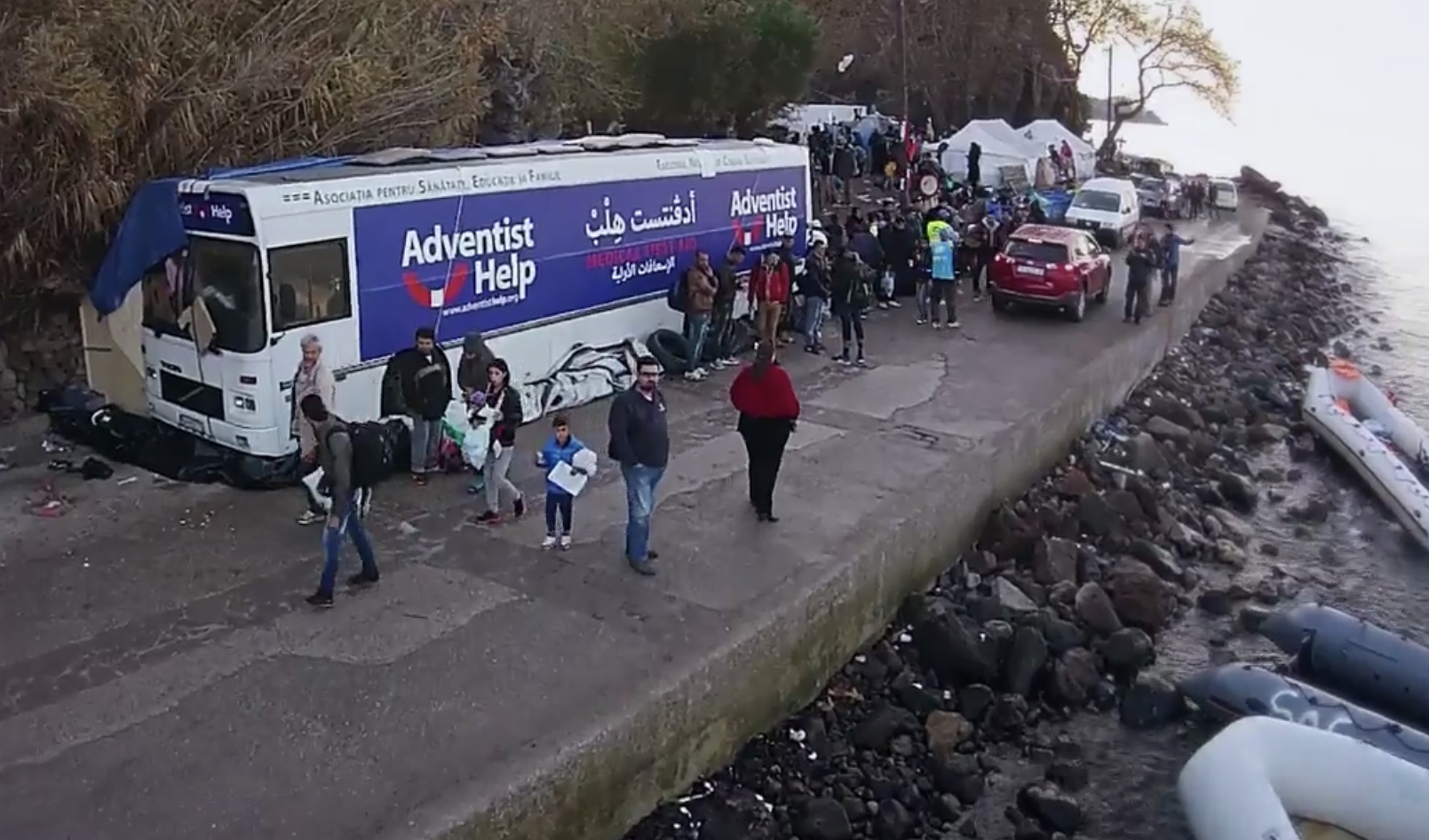
AdventistHelp sets up at the main points of entry to help refugees coming in from the Middle East and Africa.
But where did the United Nations get their “World Refugee Day” from? They got it from Rome. The Vatican has been celebrating their own “World Day of Migrants and Refugees” for over 100 years. Pope Francis and his Jesuits are making preparations to mark their 105th year for their long-standing work in providing a variety of refugee services. [3]
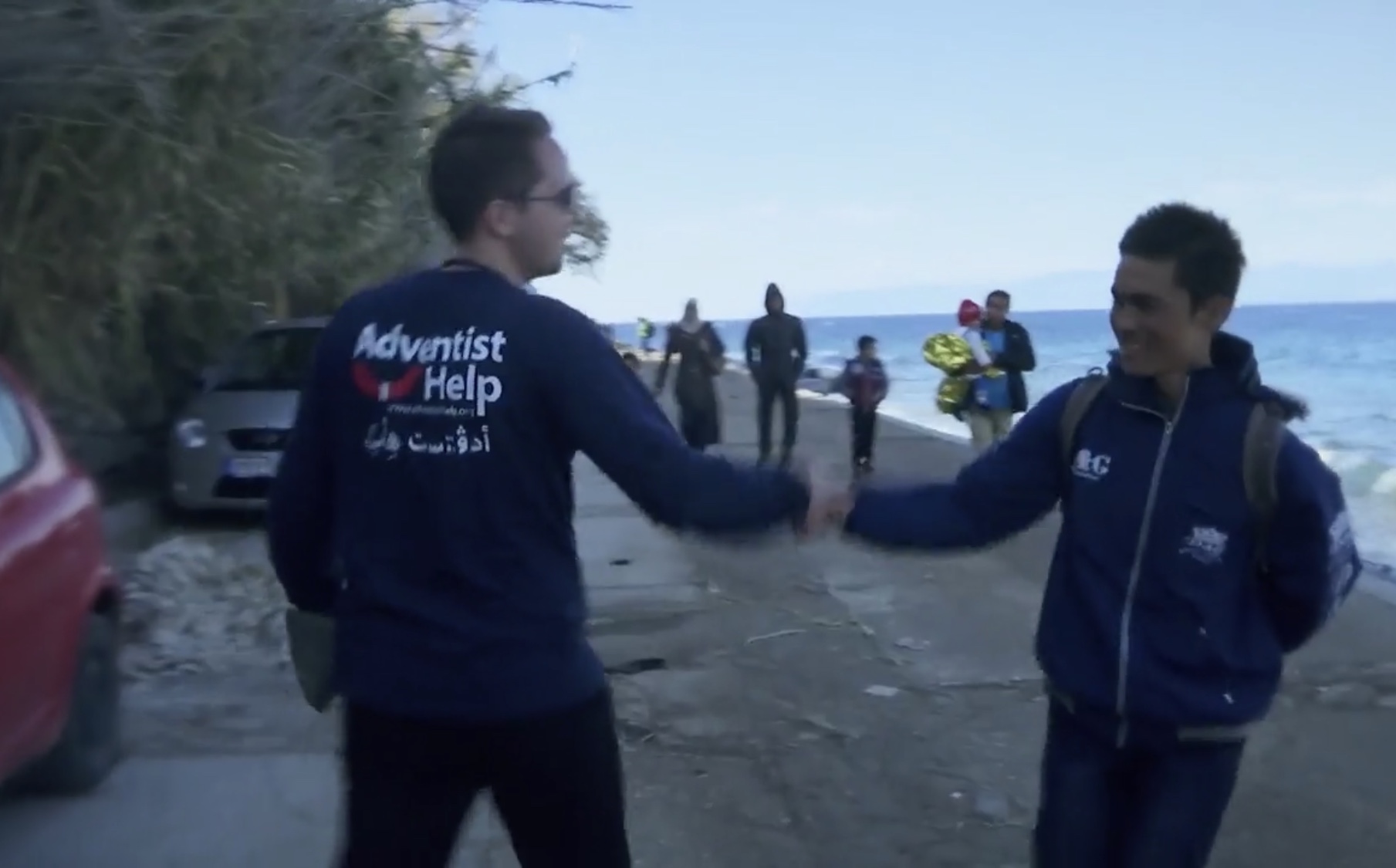
A warm welcome. Keep in mind that these refugees are not entering Europe legally.
In addition to the World Refugee Sabbath, the Seventh-day Adventist Church has also started different initiatives to help provide care and support to refugees who are immigrating to either the United States or Europe.
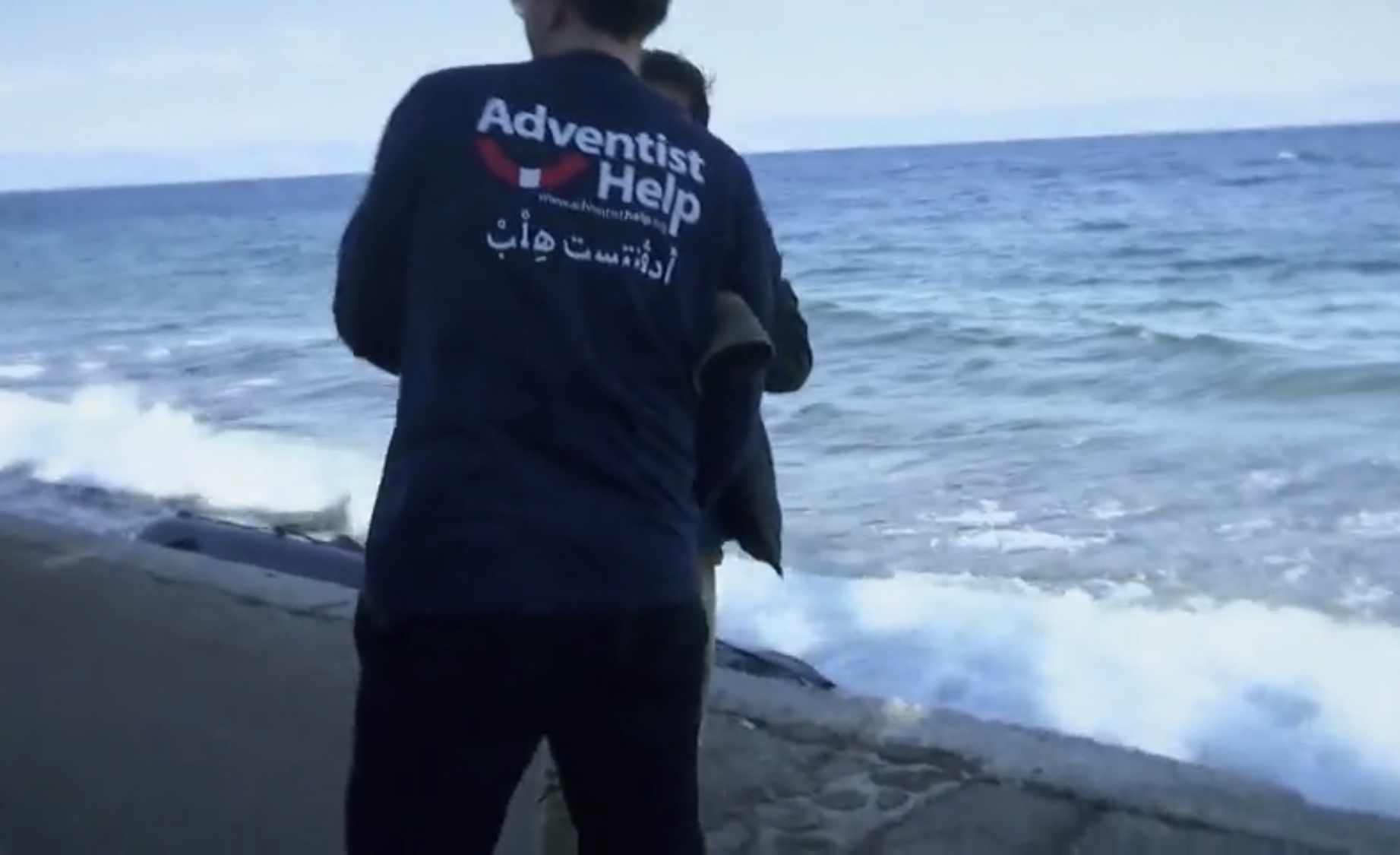
AdventistHelp provides comfort and aid.
Adventist Refugees and Immigrant Ministries was started to help immigrants in North America [4] and AdventistHelp is a program to help refugees in Europe. [5] Last but not least is Adventist Development and Relief Agency (ADRA) who has also dedicated its vast resources, workforce and volunteers to help serve and advocate in behalf of refugees. [6]
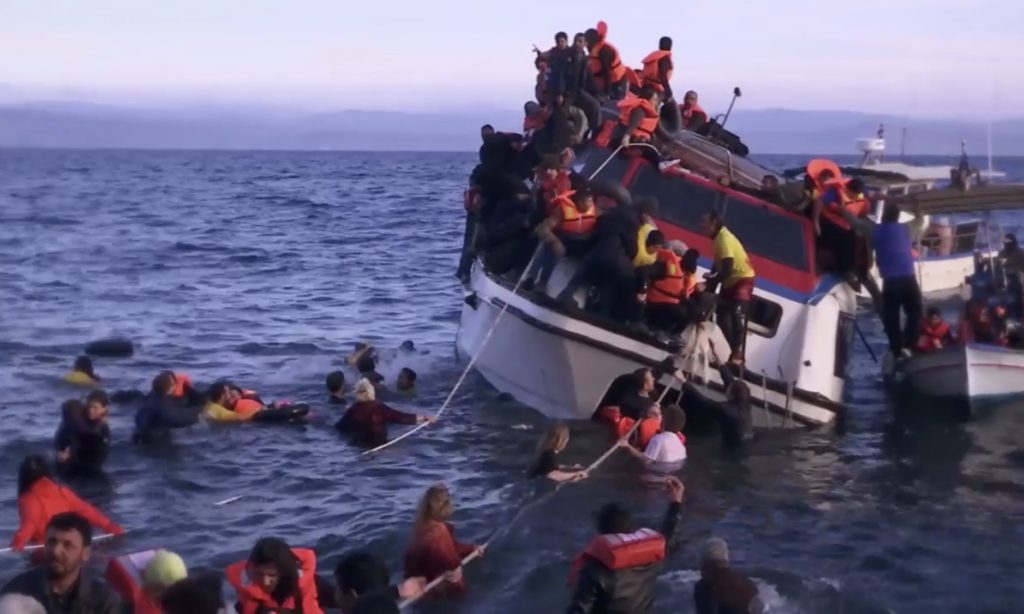
AdventistHelp is there as the refugees come off the boats.
What exactly are these Seventh-day Adventist organizations doing for refugees and other immigrants? They are building refugee camps and shelters for people on the move, they are providing food, water and clothing to refugees during their travels, they are providing medical services to refugees and they advocate for refugee rights at international summits.
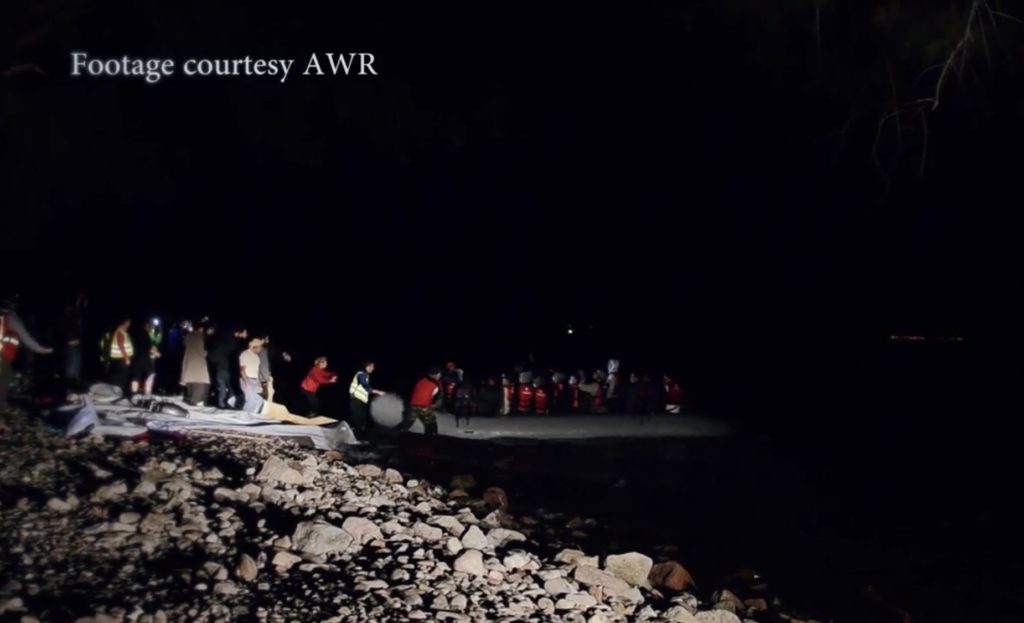
Boats come in day and night (Photo: Adventist World Radio).
Seventh-day Adventist humanitarian works such as natural disaster relief after floods, earthquakes, tsunamis, hurricanes and tornadoes are noble works that should be commended. But immigration services are much more complex. Hundreds of thousands of people are leaving their countries in the hopes of finding a better life either in Europe or in the Unites States, but these “immigrants” are bypassing the legal ports of entry that are required by local law.
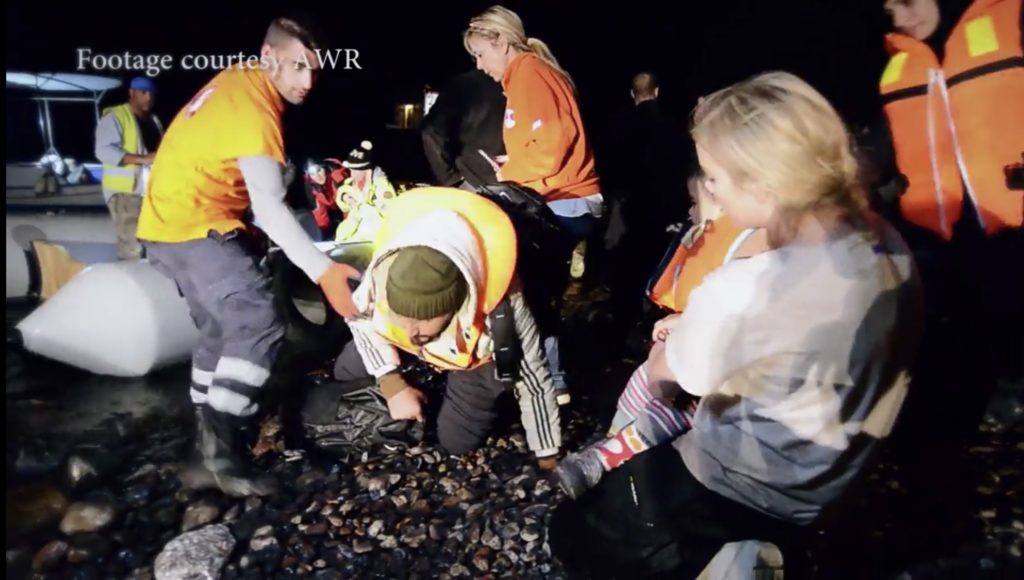
Adventists at work in the middle of the night.
America and Europe takes in many refugees and immigrants from around the world. There are legal processes by which people who are being persecuted can apply to come into these countries – legally. But at the same time we have to be willing to acknowledge that not everyone who wants to enter Europe or America is a true refugee.
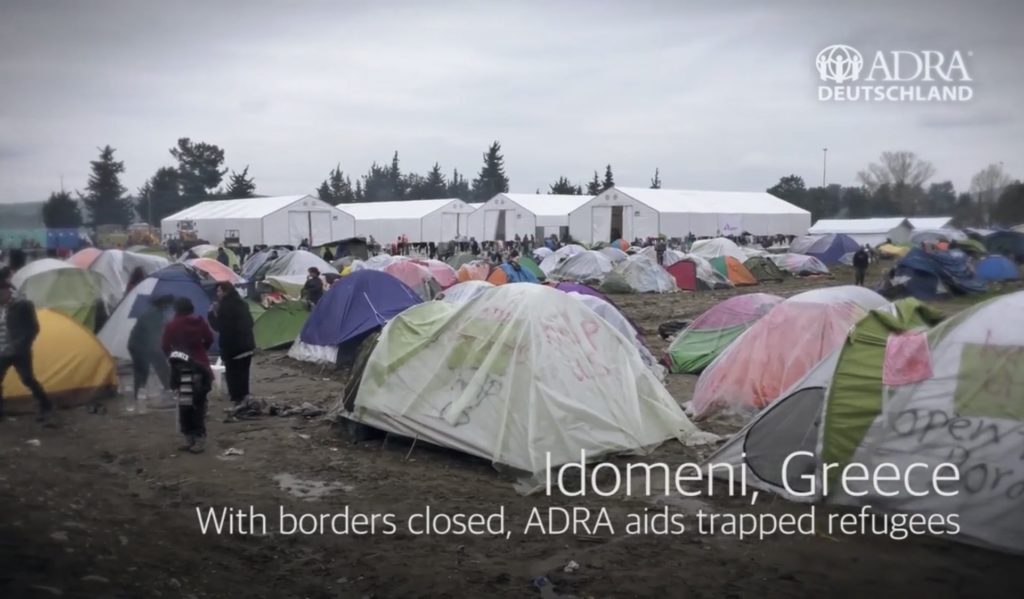
ADRA sets up refugee camps to provide shelter, food and clothing to refugees.
There is a difference between refugees and immigration. This is a conversation that is not being addressed within Adventism. We need to be sure that we understand what is truly happening in our world to ensure that we have a viewpoint that is fully informed.
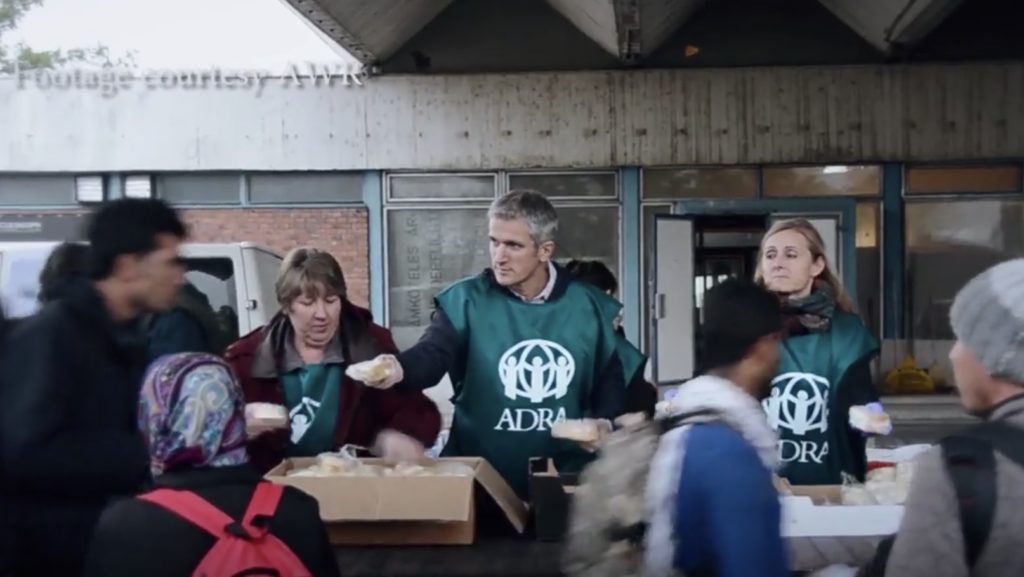
ADRA providing food to refugees on the move.
In these “refugee caravans” there are a significant number of other types of so-called “immigrants.” In addition to hard-working refugees who are looking to provide a peaceful home for their families, there are also (1) those who don’t want to work but who would rather live off of Europe’s or America’s welfare systems – free food, free housing, free healthcare and (2) terrorists who are hiding among the refugees that want to enter Europe and America undetected and (3) gangs, child-sex traffickers and other criminal elements who want to continue their illegal activities and profit from them.
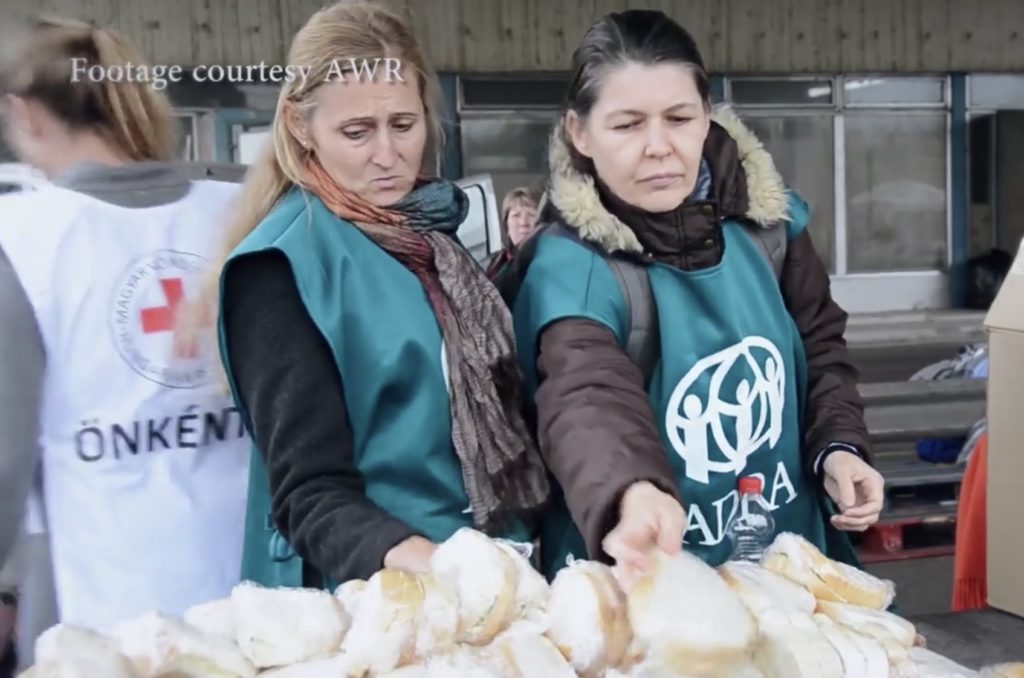
ADRA workers passing out free bread to refugees.
These are legitimate concerns and questions that Seventh-day Adventists are not even addressing in any of their refugee programs. These concerns should be part of the ongoing discussion over refugees and immigration.
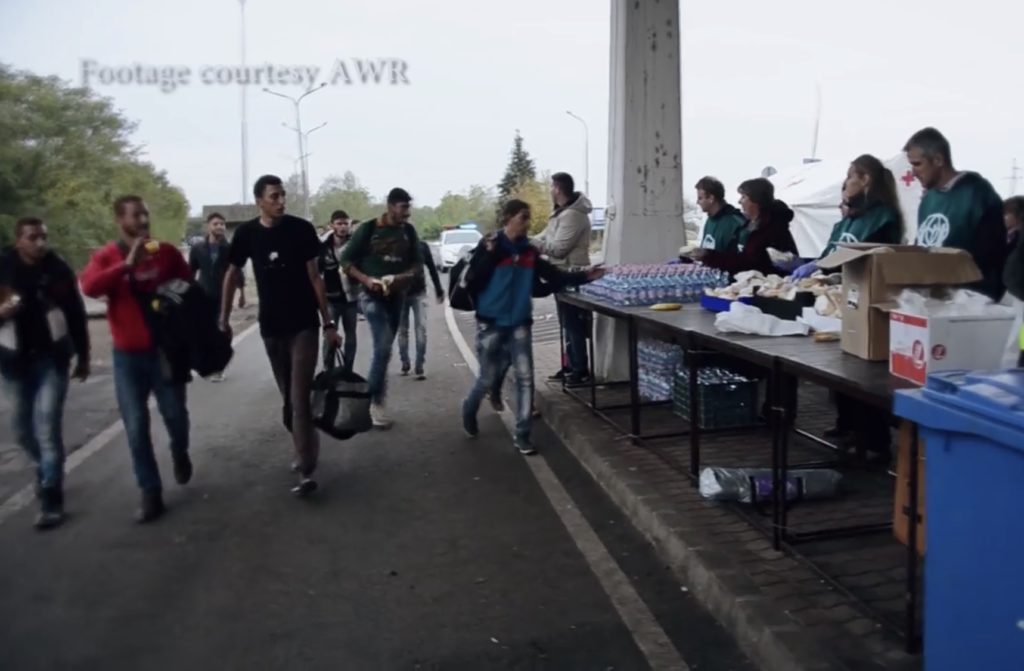
A huge number of refugees are young, able-bodied men traveling without women and children.
In Europe there are hundreds of thousands of Muslims who are moving in every year. The vast majority of them are not equipped to become productive members of society and therefore need to be assisted with housing, job-training, food and medical services.
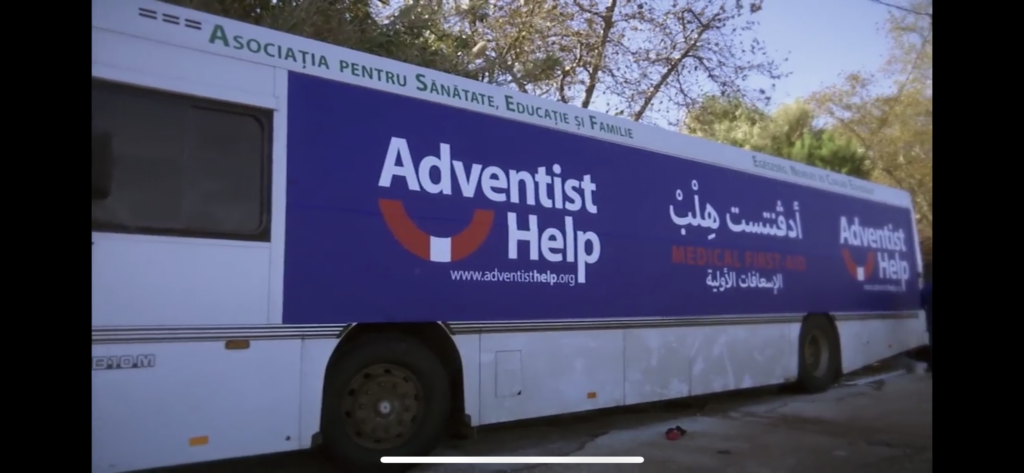
Some want to work and become independent while others want to live off government programs. Some Muslim immigrants are happy to be in Europe while others hate western democracies and have no intention in assimilating. This is causing a clash of cultures.
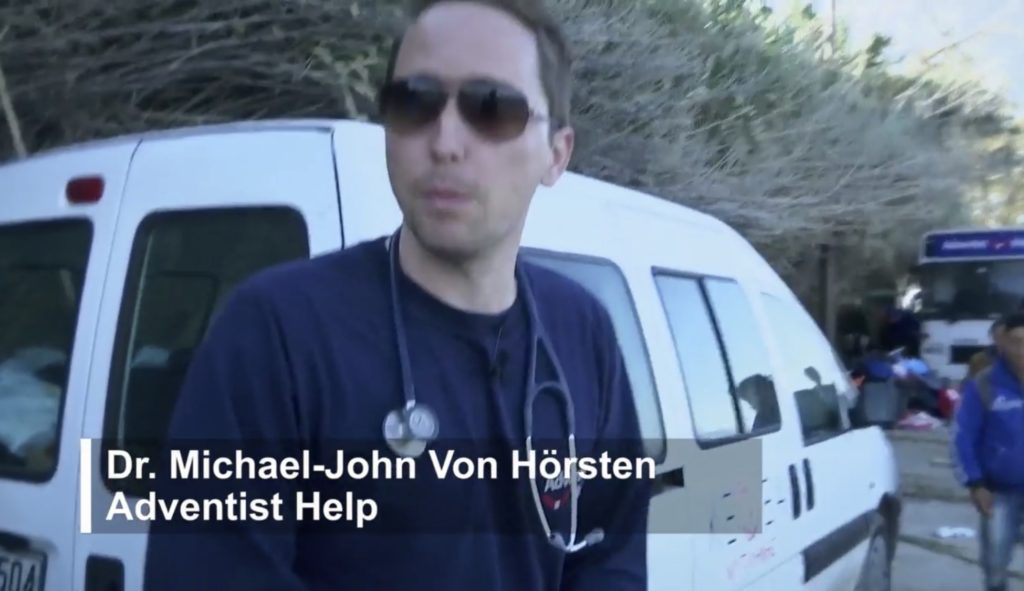
The situation in the United States is no different. There is a constant flow of immigrants coming in at the southern border. America is the most sought-after country in the history of the world. If given the chance, 80% of the world would want to move here. But how can America take in the entire world?
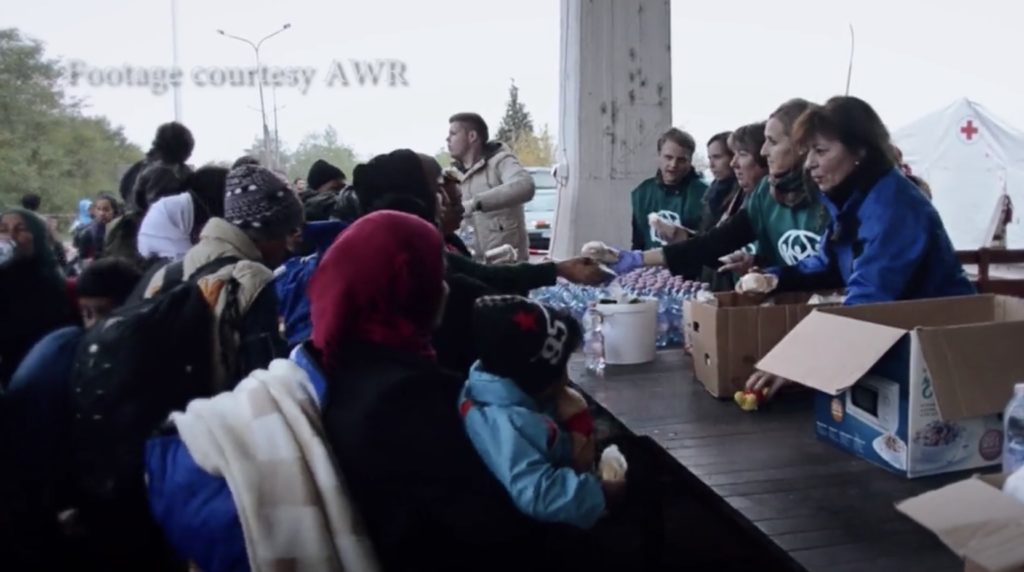
How can America help people who truly want to work and provide for their families and at the same time stop the flow of criminal elements, terrorists and others who want a free-ride by exploiting our welfare systems? This is the question that the Pope, the United Nations and Seventh-day Adventist refugee advocates are not answering.

We want to be merciful, but we also want to be wise. This is the heart of the matter that Seventh-day Adventists need to address. Our works of compassion and mercy must be mingled with wisdom and discretion. Yes, there are true, genuine refugees; but we need a system of discernment that can distinguish between the genuine and the nefarious (2 Thessalonians 3:10; 1 Timothy 5:8). We need a system that will really help people who have legitimate needs so that we are not just promoting the same old social engineering program started by Rome, a papal program that is more political than humanitarian. [7]
Sources
[1] https://www.adventist.org/en/information/special-days/refugees/
[2] https://www.un.org/en/events/refugeeday/
[4] https://www.refugeeministries.com/
[5] https://www.adventisthelp.org/
[6] https://adra.org/refugees/
[7] http://adventmessenger.org/migrant-caravan-or-invading-papal-army/